‘No bigger than a dolphin’: Dead juvenile pilot whale discovered in water before mass stranding on Bryans Beach
Skipper Noah Pennicott was devastated when he discovered a dead juvenile pilot whale ‘no bigger than a dolphin’ in East Coast waters before a mass stranding on Bryans Beach the following day.
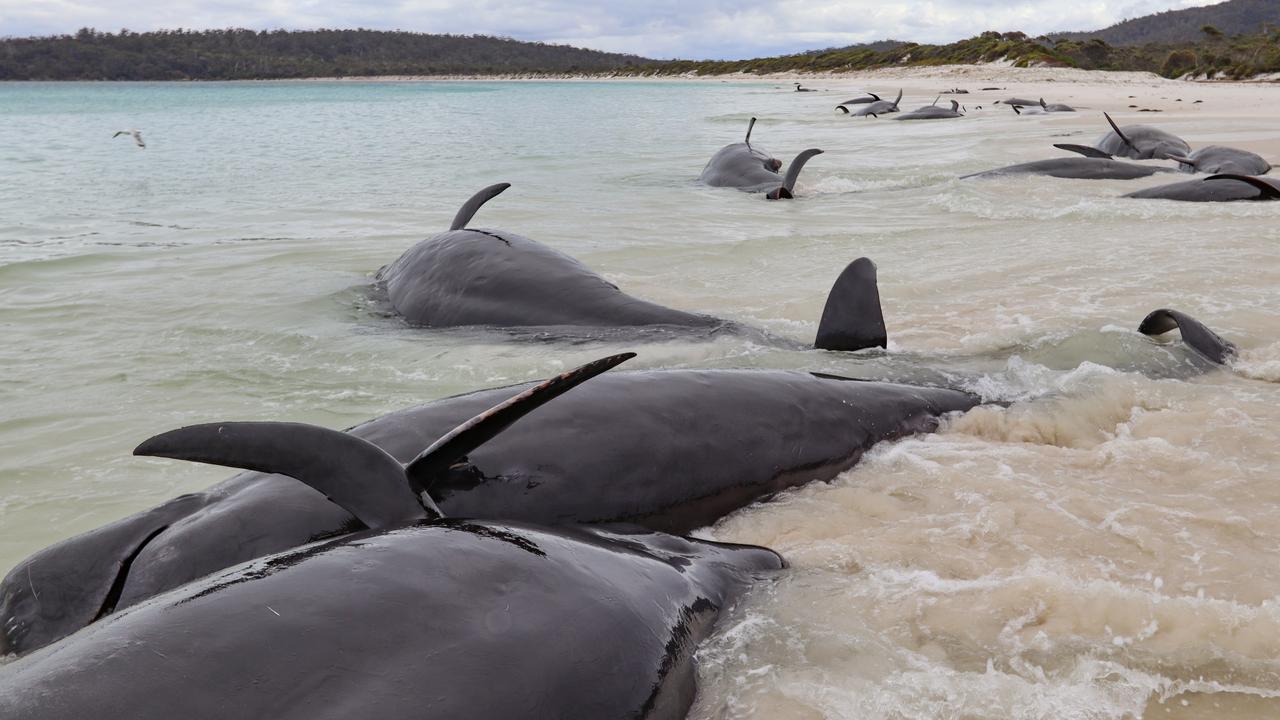
After spending his whole life on Tasmanian waters, Noah Pennicott was devastated when he discovered a dead juvenile pilot whale in the water while chartering a boat tour around the East Coast.
He was yet to realise what it heralded: the mass-stranding of a pod of 34 animals.
“I’ve spent my whole life on the water and I’ve seen a couple beached but to actually see it first-hand right up in front of the boat, it hits you pretty hard and with a fair bit of emotion,” the Pennicott Wilderness Journey skipper said.
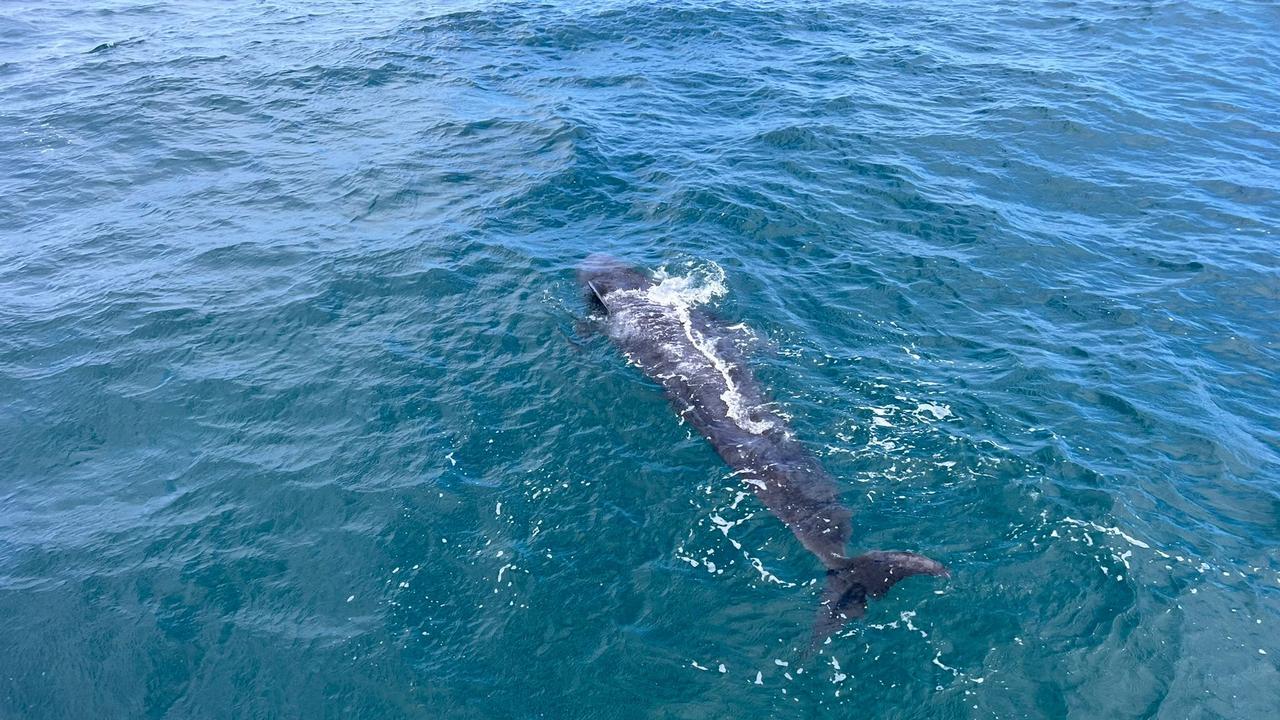
On what seemed like an ordinary Monday, Mr Pennicott noticed the “massive” object in the water while boating from Coles Bay to Wineglass Bay.
“We kind of snuck up and got a little bit closer just to see if it was anything entangled in ropes and it was unfortunately a newly deceased pilot whale,” he said.
“The biggest thing that hit me was from the boat we saw a juvenile pilot whale that honestly was no bigger than a dolphin.”
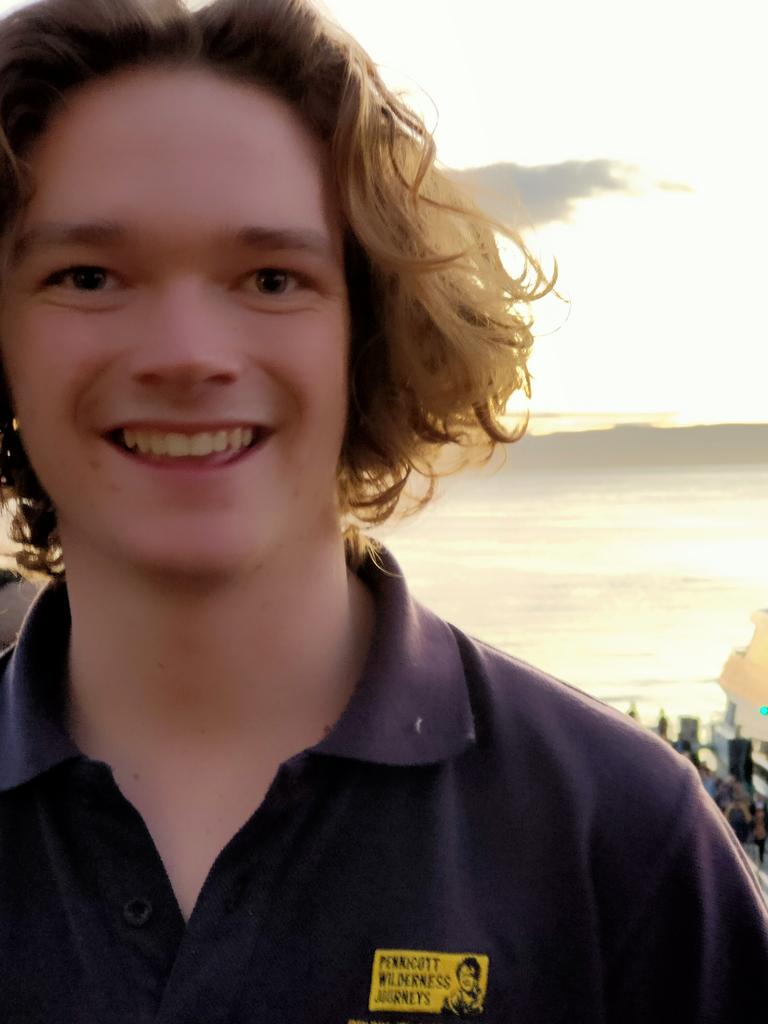
The following day, Mr Pennicott discovered the more than 30 pilot whales stranded on the corner of Bryans Beach.
“It’s terribly sad to see such beautiful animals beach themselves and die and when there’s adults and babies, it’s very sad,” his father, Rob Pennicott, said.
Officials from the Department of Natural Resources and Environment’s Marine Conservation Program assessed the situation, sampled and measured the carcasses on Wednesday.
University of Tasmania’s Institute for Marine and Antarctic Studies marine and polar predator ecology Professor Mary-Anne Lea said whales could become stranded because of physical characteristics, human induced impact or lesser known factors.
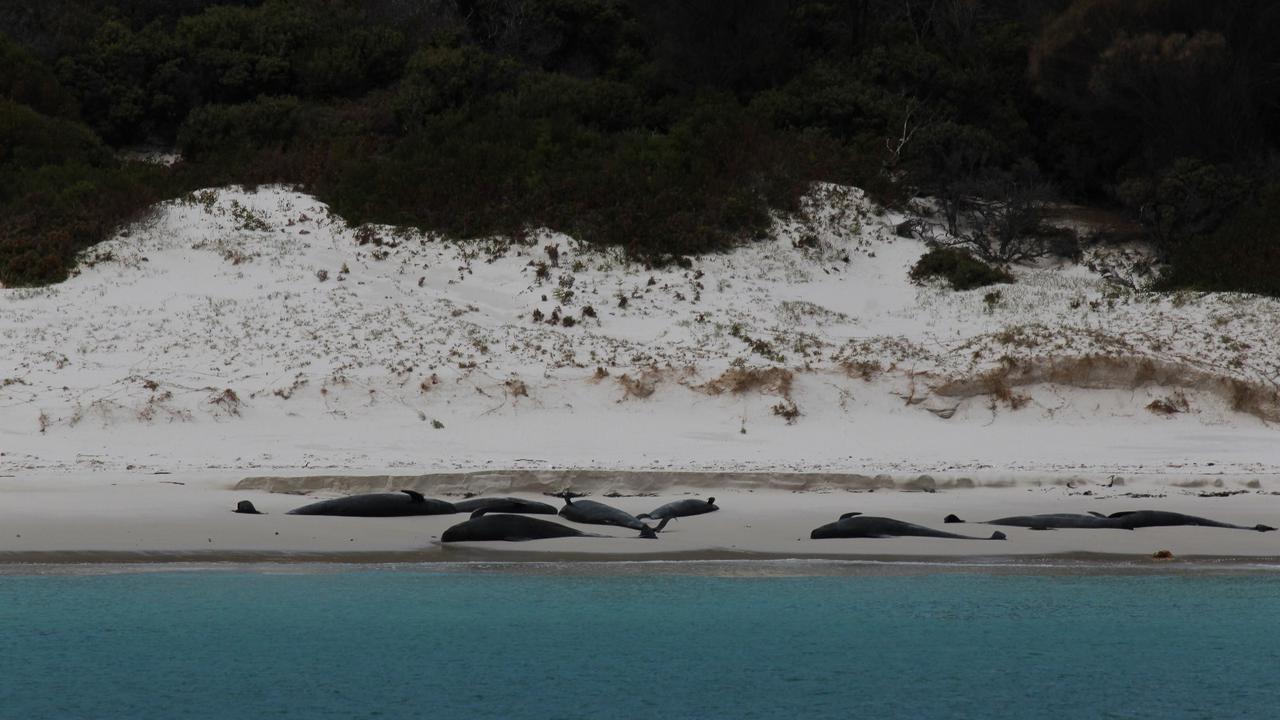
“The structure of the coast and the dynamics of the coastal region is often implicated in relation to marine productivity in the Spring so that might mean that they’re currents running close to the coast and there can be what are called acoustic dead zones,” she said.
That means marine animals, like whales, struggle to use their echolocation effectively because of the structure of a coastline, shallow beach or a spit.
“There’s quite a lot of studies that have implicated these coastal dynamics as being a potential cause,” she said.
“Another potential reason is toothed whales have very strong social bonds, often travel in family groups and so they may follow a sick group member or the group leader ashore.”
Studies have hypothesised neurotoxins from toxic algal blooms, disease, pollutants, ship strikes, acoustic disruption from seismic and sonars, solar storms and geomagnetic fields can affect whales and lead to strandings.
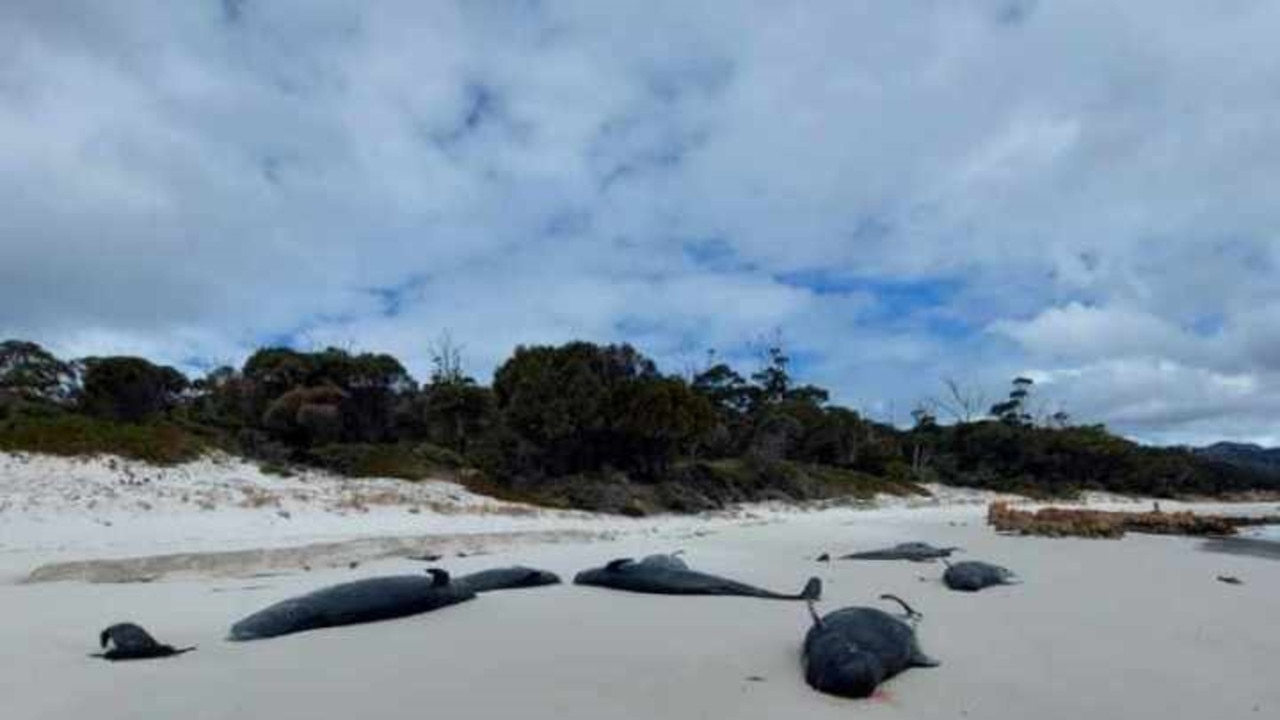
“Each stranding warrants careful attention in its own right,” Prof Lea said.
“If there are repeated strandings, in particular sites over many years, patterns start to emerge and that can help researchers gather evidence for a particular hypothesis over time.
“It takes many years and decades in order to build up a picture because these events are unpredictable and relatively rare.”
Members of the public are asked to keep their distance and report stranded whales or dolphins to the whale hotline 0427 WHALES (0427 942 537)




